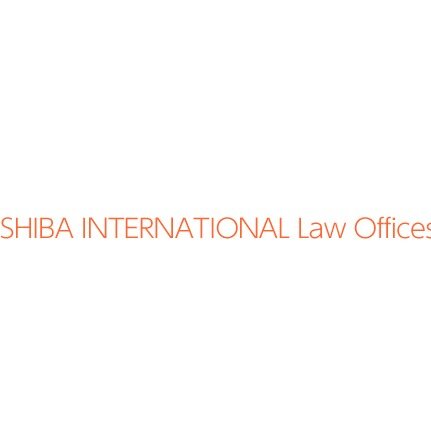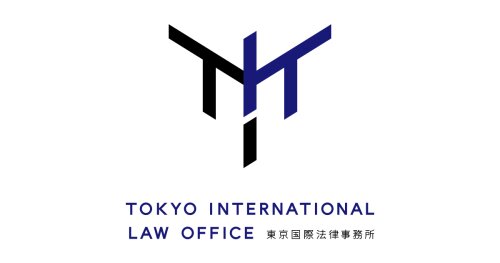Best Renewable & Alternative Energy Lawyers in Tokyo
Share your needs with us, get contacted by law firms.
Free. Takes 2 min.
List of the best lawyers in Tokyo, Japan
About Renewable & Alternative Energy Law in Tokyo, Japan
Japan has increasingly emphasized renewable and alternative energy as part of its broader strategy to ensure energy security and address environmental concerns. In Tokyo, the shift toward clean energy is reinforced by local government initiatives and national legislation aimed at reducing carbon emissions and promoting more sustainable sources of power. Major renewable energy sources include solar, wind, geothermal, biomass, and small-scale hydroelectric power. Tokyo's role as a metropolitan hub makes its energy policies especially influential, driving innovation and regulatory advancements in renewable energy technology and implementation.
Why You May Need a Lawyer
Engaging a lawyer skilled in renewable and alternative energy law can be crucial for various reasons. Common situations where legal assistance might be necessary include:
- Starting or investing in a renewable energy project and needing help navigating complex regulatory requirements.
- Securing permits or licenses for solar panels, wind turbines, or other energy infrastructure.
- Setting up power purchase agreements and negotiating contracts with utilities or third parties.
- Addressing land use, zoning, or environmental concerns impacting clean energy installations.
- Resolving disputes with partners, suppliers, or government bodies related to energy projects.
- Complying with local and national energy efficiency standards or renewable portfolio obligations.
- Protecting and licensing new renewable energy technologies or innovations.
- Understanding the implications of feed-in tariffs and government incentive programs.
Local Laws Overview
The legal landscape for renewable and alternative energy in Tokyo is shaped by both national legislation and local ordinances. Key legal frameworks include:
- Renewable Energy Special Measures Law: This national law introduced the feed-in tariff system, enabling energy producers to sell renewable energy at fixed prices.
- Act on Rationalizing Energy Use: Regulates energy efficiency standards for buildings and equipment, impacting both commercial and residential energy consumers.
- Environmental Impact Assessment Law: Large-scale energy projects must conduct environmental impact assessments before approval.
- Tokyo Metropolitan Ordinances: The Tokyo Metropolitan Government has its own regulations and incentives to promote solar power, energy conservation, and emissions reduction beyond national requirements.
- Zoning and Building Codes: Local rules may affect where and how renewable energy facilities can be installed or operated to ensure safety and compatibility with urban planning goals.
Navigating these regulations can be challenging, especially as laws evolve to support innovation and climate objectives.
Frequently Asked Questions
What types of renewable energy projects are popular in Tokyo?
Solar power is particularly common due to the ease of rooftop installation, but there is also growing interest in biomass, wind, and small-scale hydroelectric projects.
How can I participate in the feed-in tariff program?
Individuals or businesses must register their renewable energy systems with the appropriate authorities and meet technical and administrative requirements to sell electricity to utilities at guaranteed rates.
Do I need special permits to install solar panels at my residence in Tokyo?
Small-scale rooftop installations may not require complex permits, but larger systems or installations in certain zones may need approval from local government or building management associations.
What incentives are available for renewable energy projects in Tokyo?
Subsidies, grants, and tax incentives are offered by both national and Tokyo metropolitan governments to encourage adoption of clean energy systems and energy efficiency measures.
Are there restrictions on land use for wind or solar farms?
Yes, zoning laws and environmental regulations may restrict large-scale installations in certain areas to protect communities, landscapes, or ecological resources.
Can companies purchase renewable energy directly in Tokyo?
Yes, through power purchase agreements or participation in renewable energy markets, companies can directly procure green energy for their operations.
What should I consider when entering into a renewable energy contract?
Look at pricing terms, duration, performance standards, risk allocation, regulatory compliance, and dispute resolution mechanisms. Legal review is highly recommended.
How can I resolve disputes related to renewable energy contracts or projects?
Disputes may be addressed via negotiation, mediation, arbitration, or litigation, depending on contract terms and the nature of the disagreement.
Do I need to conduct an environmental impact assessment?
Large projects or those in sensitive areas often require a formal assessment. Smaller projects may be exempt, but it's important to confirm requirements with authorities.
Is it necessary to register renewable energy equipment or facilities?
Yes, registration or notification may be required, especially if connecting to the public grid or participating in government incentive programs.
Additional Resources
If you are seeking further guidance or up-to-date information about renewable and alternative energy law in Tokyo, consider consulting these resources:
- Ministry of Economy, Trade and Industry (METI) - The main national body overseeing energy policy and regulation.
- Tokyo Metropolitan Government Bureau of Environment - Provides information on local incentives and programs for renewable energy.
- Japan Renewable Energy Foundation - Offers research, advocacy, and policy analysis on the renewable sector.
- Japan External Trade Organization (JETRO) - Resources for foreign businesses and investors interested in Japan’s renewable energy market.
- Bar associations or legal aid clinics specializing in energy, environmental, or business law.
Next Steps
If you believe you need legal assistance in the field of renewable and alternative energy in Tokyo, consider these steps:
- Identify your main legal needs, such as project development, contract drafting, compliance, or dispute resolution.
- Gather any relevant documents, correspondence, and background information.
- Reach out to a lawyer or legal firm with expertise in energy and environmental law, preferably with experience in Tokyo or Japan.
- Prepare a list of questions or concerns to discuss during your initial consultation.
- Check for any available governmental or local consultation services that may offer preliminary advice or referrals.
- Stay informed about changes to laws, regulations, and incentive programs that may impact your project or interests.
Taking these steps can help ensure you receive tailored legal support and avoid potential pitfalls as you engage with Tokyo’s dynamic renewable and alternative energy sector.
Lawzana helps you find the best lawyers and law firms in Tokyo through a curated and pre-screened list of qualified legal professionals. Our platform offers rankings and detailed profiles of attorneys and law firms, allowing you to compare based on practice areas, including Renewable & Alternative Energy, experience, and client feedback.
Each profile includes a description of the firm's areas of practice, client reviews, team members and partners, year of establishment, spoken languages, office locations, contact information, social media presence, and any published articles or resources. Most firms on our platform speak English and are experienced in both local and international legal matters.
Get a quote from top-rated law firms in Tokyo, Japan — quickly, securely, and without unnecessary hassle.
Disclaimer:
The information provided on this page is for general informational purposes only and does not constitute legal advice. While we strive to ensure the accuracy and relevance of the content, legal information may change over time, and interpretations of the law can vary. You should always consult with a qualified legal professional for advice specific to your situation.
We disclaim all liability for actions taken or not taken based on the content of this page. If you believe any information is incorrect or outdated, please contact us, and we will review and update it where appropriate.
















